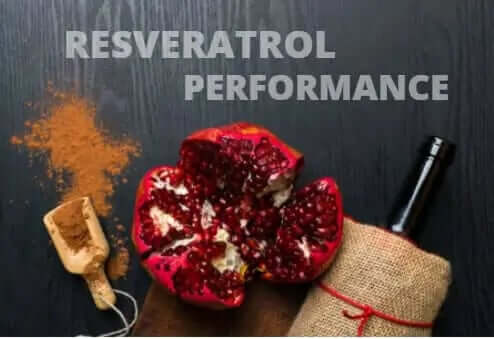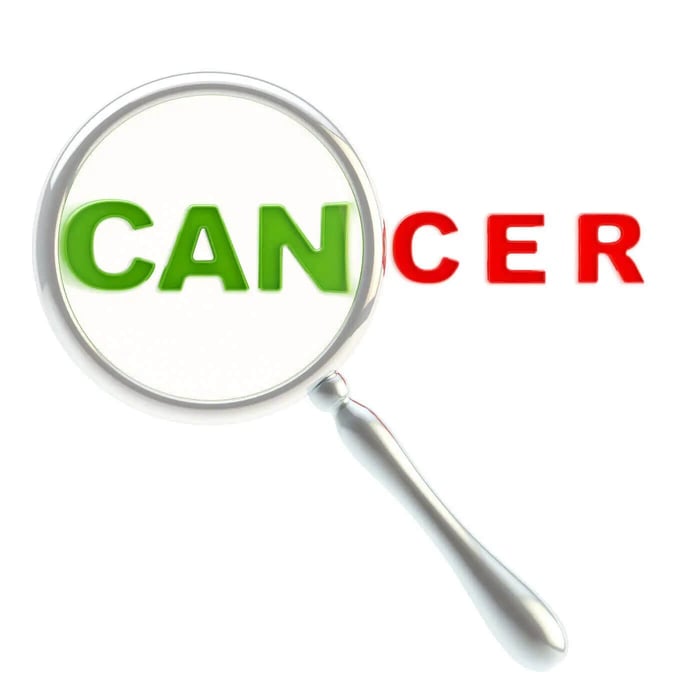Resveratrol: Understanding Its Direct Molecular Target and Revolutionary Health Benefits
Resveratrol stands as one of nature's most fascinating compounds, captivating scientists and health enthusiasts alike with its remarkable ability to support human wellness across multiple body systems. This powerful polyphenol, found naturally in red grapes, berries, and peanuts, has emerged as a cornerstone of longevity research and preventive health strategies.
The Scientific Journey to Discover Resveratrol's Primary Target
For over two decades, researchers have meticulously studied resveratrol and its profound impact on human health. The compound's versatility in addressing age-related conditions, from metabolic disorders to cardiovascular challenges, has sparked intense scientific curiosity about its precise mechanism of action.
The quest to identify how resveratrol works at the molecular level represents one of the most exciting developments in nutritional biochemistry. Understanding this mechanism opens doors to enhanced therapeutic applications and optimized supplementation strategies that could transform how we approach healthy aging.
Breaking Through: The Phosphodiesterase Discovery
A groundbreaking international collaboration has finally unveiled resveratrol's direct molecular target. Researchers from prestigious institutions including the National Institute of Health, University of California Davis, University of North Carolina, University of Texas Southwestern, Emerald BioStructure, Sun Yat-sen University, and University Medical Center Netherlands joined forces to solve this biological puzzle.
Their revolutionary findings, published in the prestigious journal Cell, reveal that resveratrol directly binds to and inhibits enzymes called phosphodiesterases (PDEs). This discovery represents a paradigm shift in our understanding of how this natural compound delivers its wide-ranging health benefits.
The Cellular Cascade: How Resveratrol Activates Longevity Pathways
When resveratrol blocks PDE activity, it triggers a sophisticated cellular response:
- PDE Inhibition: Resveratrol binds directly to phosphodiesterase enzymes, preventing their normal function
- Epac1 Activation: This inhibition activates another crucial enzyme called Epac1
- AMPK Stimulation: Epac1 then triggers AMPK, often called the body's "metabolic master switch"
- Sirtuin 1 Activation: Finally, this cascade activates sirtuin 1, the longevity protein long associated with resveratrol's benefits
This elegant molecular pathway explains how a single compound can influence so many aspects of cellular health and longevity.
Comprehensive Health Benefits of Resveratrol
The discovery of resveratrol's mechanism illuminates why this compound demonstrates such impressive therapeutic potential across multiple health domains:
Cardiovascular Protection
Resveratrol supports heart health through multiple mechanisms. By improving endothelial function and reducing oxidative stress, it helps maintain healthy blood pressure and supports optimal circulation. Studies consistently show that regular resveratrol supplementation can contribute to better cardiovascular outcomes, particularly in aging populations.
Metabolic Health and Diabetes Management
The compound's ability to activate AMPK makes resveratrol particularly valuable for metabolic health. Research indicates it can improve insulin sensitivity, support healthy blood sugar levels, and enhance cellular energy metabolism. These effects make it a promising natural approach for those managing or seeking to prevent type 2 diabetes.
Cancer Prevention Properties
Extensive research demonstrates resveratrol's potential as a chemopreventive agent. Its ability to modulate cellular signaling pathways involved in cancer development, combined with its anti-inflammatory and antioxidant properties, positions it as a valuable tool in cancer prevention strategies.
Neuroprotective Effects
Emerging evidence suggests resveratrol can cross the blood-brain barrier and provide neuroprotective benefits. By reducing inflammation and oxidative stress in brain tissue, it may help preserve cognitive function and protect against age-related neurological decline.
Optimizing Resveratrol Supplementation
Understanding how resveratrol works allows for more strategic supplementation approaches:
Bioavailability Considerations
While resveratrol offers remarkable benefits, its natural bioavailability can be limited. Modern supplement formulations often include complementary compounds or use specialized delivery systems to enhance absorption and cellular uptake.
Dosage Guidelines
Research suggests that effective resveratrol doses typically range from 150mg to 500mg daily, though individual needs may vary based on health goals and existing conditions. Starting with lower doses and gradually increasing allows the body to adapt optimally.
Timing and Combination Strategies
Taking resveratrol with food can improve absorption, particularly when consumed with healthy fats. Some research suggests combining it with other polyphenols or nutrients may enhance its beneficial effects through synergistic interactions.
The Future of Resveratrol Research
The identification of PDEs as resveratrol's primary target opens exciting new research avenues. Scientists can now develop more targeted interventions that enhance or mimic resveratrol's effects, potentially leading to breakthrough therapies for age-related diseases.
Personalized Medicine Applications
As we better understand how resveratrol works at the molecular level, personalized supplementation strategies become possible. Genetic testing and biomarker analysis may soon guide individualized dosing and combination recommendations for optimal health outcomes.
Pharmaceutical Development
The PDE-inhibition mechanism provides a blueprint for developing new drugs that could amplify resveratrol's benefits or target specific health conditions more precisely. This knowledge bridges the gap between natural compounds and pharmaceutical innovation.
Practical Implementation for Optimal Health
Incorporating resveratrol into a comprehensive wellness strategy can yield significant benefits:
- Daily Supplementation: Consistent intake ensures steady cellular support
- Dietary Sources: Include resveratrol-rich foods like red grapes, blueberries, and dark chocolate
- Lifestyle Synergy: Combine with exercise and healthy eating for amplified effects
- Medical Consultation: Discuss with healthcare providers, especially if taking medications
Scientific Validation and Ongoing Studies
The confirmation of resveratrol's mechanism through multiple research approaches strengthens confidence in its therapeutic potential. Researchers used chemical PDE inhibitors to replicate resveratrol's effects, providing independent validation of the phosphodiesterase pathway.
Current studies continue to explore how this mechanism translates into specific health benefits across different tissues and organ systems. This ongoing research promises to reveal even more applications for resveratrol in promoting human health and longevity.
Conclusion: A New Era of Resveratrol Understanding
The discovery of resveratrol's direct molecular target marks a pivotal moment in nutritional science. By revealing how this remarkable compound initiates its cascade of health benefits through PDE inhibition, researchers have provided a foundation for more effective therapeutic applications and personalized health strategies.
As we continue to unravel the complexities of resveratrol's actions, one thing remains clear: this natural compound represents a powerful tool for supporting healthy aging and preventing chronic disease. The future holds even greater promise as scientists build upon this fundamental understanding to develop innovative approaches to human wellness.
Frequently Asked Questions About Resveratrol
What exactly is resveratrol and where does it come from?
Resveratrol is a natural polyphenol compound found primarily in the skin of red grapes, as well as in blueberries, cranberries, peanuts, and Japanese knotweed. Plants produce this compound as a protective response to stress, injury, or fungal infection. In supplement form, resveratrol is typically extracted from Japanese knotweed or synthesized to ensure purity and potency. This remarkable compound gained fame through the "French Paradox" observation, where moderate red wine consumption appeared to offer cardiovascular protection despite a diet high in saturated fats.
How does resveratrol work at the cellular level?
Resveratrol works by directly binding to and inhibiting phosphodiesterase (PDE) enzymes. This action triggers a cascade of beneficial cellular events: first activating Epac1, then AMPK (the metabolic master switch), and finally sirtuin 1 (the longevity protein). This sophisticated pathway explains how resveratrol can influence multiple aspects of cellular health, from energy metabolism to DNA repair. The compound essentially mimics the beneficial effects of caloric restriction at the molecular level, promoting cellular efficiency and longevity without requiring dietary changes.
What are the scientifically proven benefits of resveratrol?
Scientific research has documented numerous benefits of resveratrol supplementation. These include enhanced cardiovascular health through improved blood vessel function and reduced inflammation, better metabolic health with improved insulin sensitivity and blood sugar control, potential cancer-preventive properties through its antioxidant and anti-inflammatory effects, neuroprotective benefits that may help preserve cognitive function, and support for healthy aging by activating longevity pathways. Additionally, resveratrol has shown promise in supporting exercise performance, reducing oxidative stress, and promoting healthy inflammatory responses throughout the body.
What is the optimal dosage of resveratrol for health benefits?
Research suggests that effective resveratrol doses typically range from 150mg to 500mg per day, though some studies have used higher amounts. The optimal dose can vary based on individual health goals, body weight, and existing health conditions. Starting with a lower dose (around 150-250mg) and gradually increasing allows your body to adapt. For enhanced absorption, take resveratrol with a meal containing healthy fats. Some people benefit from splitting their daily dose into morning and evening servings. Always consult with a healthcare provider to determine the most appropriate dosage for your specific needs.
Can resveratrol be taken with other supplements or medications?
Resveratrol generally has a good safety profile and can be combined with many other supplements. It may actually work synergistically with compounds like quercetin, curcumin, and other polyphenols. However, because resveratrol can affect blood clotting and interact with certain medications (particularly blood thinners, NSAIDs, and some heart medications), it's essential to consult with a healthcare provider before starting supplementation, especially if you take prescription medications. The compound may also enhance the effects of other supplements that support metabolic health or cardiovascular function.
How long does it take to see results from resveratrol supplementation?
The timeline for experiencing benefits from resveratrol varies depending on the specific health outcomes you're targeting. Some people report increased energy and improved well-being within 2-4 weeks of consistent use. Cardiovascular benefits, such as improved blood pressure or cholesterol levels, typically become measurable after 8-12 weeks. For metabolic improvements and long-term protective effects, consistent supplementation for 3-6 months or longer is usually necessary. Remember that resveratrol works best as part of a comprehensive healthy lifestyle including proper nutrition and regular exercise.
Are there any side effects associated with resveratrol?
Resveratrol is generally well-tolerated by most people when taken at recommended doses. Some individuals may experience mild digestive discomfort, especially when starting supplementation or taking high doses on an empty stomach. Rarely, people report headaches or dizziness. Due to its mild blood-thinning properties, resveratrol should be used cautiously by those taking anticoagulant medications or preparing for surgery. The compound may also interact with estrogen-sensitive conditions due to its mild phytoestrogenic properties. Starting with lower doses and taking supplements with food typically minimizes any potential side effects.
What makes pharmaceutical-grade resveratrol different from food sources?
While dietary sources of resveratrol provide some benefits, pharmaceutical-grade supplements offer several advantages. The concentration in foods is relatively low; you would need to consume impractical amounts of red wine or grapes to achieve therapeutic doses. Supplements provide standardized, concentrated doses of pure resveratrol, ensuring consistent potency and bioavailability. Many modern formulations also include absorption enhancers or use specialized delivery systems to overcome resveratrol's naturally low bioavailability. This makes supplementation a more practical and effective way to harness the compound's full health benefits.
How does resveratrol support healthy aging?
Resveratrol supports healthy aging through multiple mechanisms that address the root causes of age-related decline. By activating sirtuins and AMPK, it mimics the life-extending effects of caloric restriction. The compound helps maintain cellular energy production, supports DNA repair mechanisms, and reduces chronic inflammation associated with aging. Resveratrol also protects against oxidative stress, supports cardiovascular health, and may help preserve cognitive function. These combined effects contribute to what researchers call "healthspan" - not just living longer, but maintaining vitality and function throughout the aging process.
What should I look for when choosing a resveratrol supplement?
When selecting a resveratrol supplement, prioritize products that specify trans-resveratrol content, as this is the bioactive form. Look for supplements with at least 98% purity and third-party testing verification. Consider formulations that include absorption enhancers like piperine or use micronized particles for better bioavailability. Check for GMP (Good Manufacturing Practices) certification and avoid products with unnecessary fillers or artificial ingredients. Some advanced formulations combine resveratrol with complementary compounds like quercetin or pterostilbene for enhanced benefits. Reading customer reviews and choosing reputable brands with transparent labeling helps ensure you're getting a quality product.
References
- Clinical studies on resveratrol and cancer prevention
- Cardiovascular protection mechanisms of resveratrol
- Discovery of resveratrol's direct molecular target







